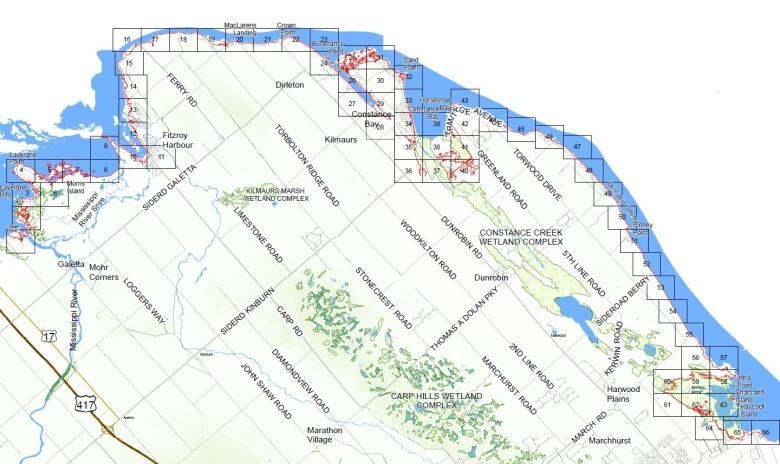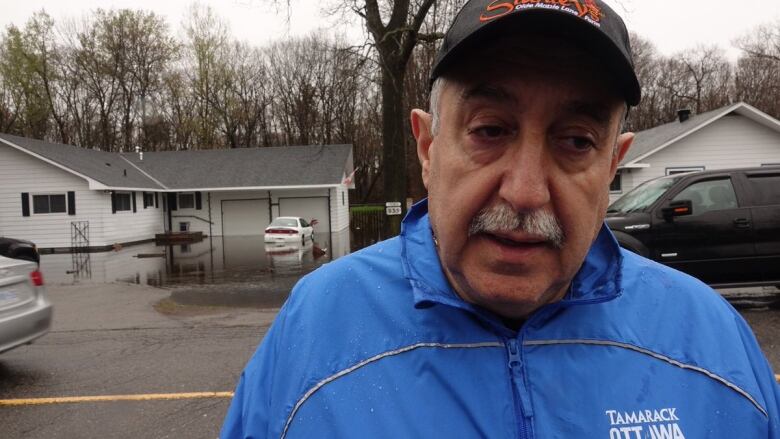Experts urge caution before rebuilding on floodplain
Water engineers question wisdom of renovating or rebuilding homes in flood-prone areas

As property owners living near the Ottawa River assess the flood damage to their homes and cottages, some experts are urging them to think twice before rebuilding in the same spot.
Some of the homes within the affected flood zones were built long before the current rules were in place that require flood-proof construction measures, such as building with no basements or using fill to elevate a home above the flood line.
John Price, water resources engineer at the Mississippi Valley Conservation Authority, said people and planners should be paying close attention to current flood mapping.

"Any time that you have an emergency situation, it's always an opportunity to pause and reflect on the policies you have,"said Price. "Probably it should occur in this case as well."

"I never want to move," said Ruth McKlusky from Constance Bay. "It really hurts when I hear these comments 'Should people be compensated in a floodplain?' I bought this place in good faith. It was built in the '70s. To me, with comments like that, is like kicking somebody when you're down."
But Glenn McGillivray, from the Institute for Catastrophic Loss Reduction, said while his heart goes out to the flood victims, what's needed right now is "tough love."
McGillivray points to action taken after other historic floods such as Hurricane Hazel that hit Toronto in 1954.
"We have to look at the buy-outs that took place in the Toronto area," said McGillivray. "We turned the neighbourhoods into parkland and now those parks flood This is the type of thing we have to do. They're not easy decisions, but something has to change."

"Some people say, 'Oh, it only happens every 20, 30 years, 100 years, so that means it's going to happen again,'" said El-Chantiry. "Maybe we need to review."
According to Colin Rennie, hydrologist and chair of the civil engineering department at the University of Ottawa, policies already exist in Ontario to prevent flooding including rules that limit building on a floodplain. Rennie said these policies just need to be followed more vigorously.

Renniecalculatedthat for homes in a floodplain, there's almost a 50 per-cent chance "of the house being flooded withinthose 50 years, which to me says it's pretty likely to happen."
And of course, there's no guarantee that if your home is floodedone year, it won't also flood the next.
Mayor wouldn't prohibit rebuilding
Mayor Jim Watson noted last week that every municipality that has been flooded will have to re-examinewhat it allows and doesn't allow in terms of construction on floodplains. But the mayor stopped short of commenting on whether some people will be prohibited from rebuilding.
"I don't know what authority we have on that front," he told reporters last year. "People own the property, they have the right to, I assume, build to the same footprint based on conservation authority and city and provincial rulesNot sure you can take someone's right away if they're willing to build back in the situation.
"That's a decision they're making."












_(720p).jpg)


 OFFICIAL HD MUSIC VIDEO.jpg)
.jpg)



























































































